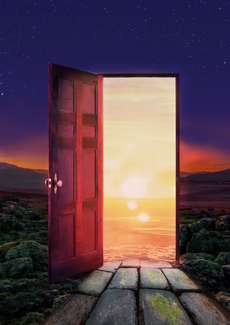Kristin Aubel
Deities of Death in Fantasy Media: Evil Villains or Forces of Nature?
Deities of death in fantasy media often embody two opposing views on death: One is the idea of death as a looming threat that has to be defeated, the other that of death as a necessary and natural part of life. In this talk, I will take a detailed look at how the deities of death in Percy Jackson, Critical Role and A Song of Ice and Fire, as well as in their respective adaptations, oscillate between this duality of death as a threat and as a necessity.
In Rick Riordan’s Percy Jackson series (2005-present), Hades, the Greek god of death and the underworld, represents this duality on a textual as well as a metatextual level. He is, due to his great potential for evil and his outsider status among the gods, quickly and wrongly assumed to be the villain of the first novel. While Hades remains slightly antagonistic throughout the series, reflecting the characters’ uneasiness with death, he is essential to the heroes’ victory in the final battle, solidifying the importance of his position. In the film adaptation of the first novel, Percy Jackson and the Olympians: The Lightning Thief (2010), however, the twist is reversed and Hades is indeed the evil villain he appears to be and has to be defeated.
In the actual play series Critical Role (2015-2017), as well as its cartoon adaptation The Legend of Vox Machina (2022-present), both based on Dungeons & Dragons, the Raven Queen plays an important role as goddess of death and fate. While she is an antagonist in her first direct appearance, she eventually becomes an empowering entity. As many elements of Dungeons & Dragons are inspired by Tolkien’s lore, the Raven Queen’s exclamation that "There is much to fear, but not death, for it gives meaning to life", is very much in accordance with the idea of death as a gift to the human race present in Tolkien’s work.
In George R. R. Martin’s A Song of Ice and Fire series (1996-present) as well as its TV adaptation Game of Thrones (2011-2019), this idea is also present, albeit imbued with neoliberal logic. In contrast to the other examples, here the gods never appear directly and are instead represented through their followers. While the Many-Faced God is only explicitly called a god of death in the TV adaptation, his followers express in both series the belief that death is a gift in order to end suffering which they themselves grant when they are paid for it. Within the pantheon of the Faith of the Seven, the Stranger is the aspect of death. Similar to Hades in Percy Jackson, he is met with caution and is seldom worshiped, revealing a bias towards the other, more tangible and less threatening aspects.
Kristin Aubel holds a Master’s degree in Applied Literary and Cultural Studies. She is currently a PhD candidate and university assistant at the Department of English and American Studies at the University of Vienna, Austria. Her research interests include myth, identity construction, migration literature, magical realism, fantasy, and superhero comics. Her PhD thesis focuses on transcultural transformations of myth in contemporary fantastic literature.







